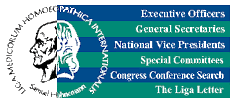Such illnesses as tuberculosis, salmonella, syphilis and some forms of meningitis are caused by bacteria. Some bacteria are not harmful, while others are good for us.
Antibiotic Uses and Side Effect
Before bacteria can multiply and cause symptoms our immune system can usually destroy them. We have special white blood cells that attack harmful bacteria. Even if symptoms do occur, our immune system can usually cope and fight off the infection. There are occasions, however, when it is all too much and our bodies need some help - from antibiotics.
The first antibiotic was penicillin. Such penicillin-related antibiotics as ampicillin, amoxicillin and benzylpenicilllin are widely used today to treat a variety of infections - these antibiotics have been around for a long time. There are several different types of modern antibiotics and they are only available with a doctor's prescription in industrialized countries.
How do antibiotics work?
Although there are a number of different types of antibiotic they all work in one of two ways:
* A bactericidal antibiotic kills the bacteria. Penicillin is a bactericidal. A bactericidal usually either interferes with the formation of the bacterium's cell wall or its cell contents.
What are antibiotics for?
An antibiotic is given for the treatment of an infection caused by bacteria. Antibiotics target microorganisms such as bacteria, fungi and parasites. However, they are not effective against viruses because viruses are not microorganisms. If you have an infection it is important to know whether it is caused by bacteria or a virus. Most upper respiratory tract infections, such as the common cold and sore throats are generally caused by viruses - antibiotics do not work against these viruses.
If antibiotics are overused or used incorrectly there is a chance that the bacteria will become resistant - the antibiotic becomes less effective against that type of bacterium.
A broad-spectrum antibiotic can be used to treat a wide range of infections. A narrow-spectrum antibiotic is only effective against a few types of bacteria. There are antibiotics that attack aerobic bacteria, while others work against anaerobic bacteria. Aerobic bacteria need oxygen, while anaerobic bacteria don't.
Cure for type 1 Diabetes - Cutting-edge Stem cell treatment 30% diabetes type 1 patients cured - www.puhuachina.com
98% Thyroid Disease Cured - 100% Natural Herbs, with TGA, GMP, SGS. Thousands of recovery cases! - www.greenlife-herbal.com
Antibiotics may be given beforehand, to prevent infection, as might be the case before surgery. This is called 'prophylactic' use of antibiotics. They are commonly used before bowel and orthopedic surgery.
What are the side-effects of antibiotics?
Below is a list of the most common side-effects of antibiotics:
* Diarrhea
* Feeling and being sick
* Fungal infections of the mouth, digestive tract and vagina
Below is a list of rare side-effects of antibiotics:
* Formation of kidney stones (when taking sulphonamides)
* Abnormal blood clotting (when taking some cephalosporins)
* Sensitivity to sun (when taking tetracyclines)
* Blood disorders (when taking trimethoprim)
* Deafness (when taking erythromycin and the aminoglycosides)
Some patients, especially elderly ones, may experience inflamed bowels (a type of colitis) which can lead to severe diarrhea. Clindamycin, an antibiotic used for the most serious infections, commonly has this side effect. However, although much less common, penicillins, cephalosporins and erythromycin might do too.
Tahukah ANDA
Antibiotik Boleh Mengurangkan Kualiti Seks Anda
Seorang lelaki yang mengamalkan 'makan ubat antibiotik' yang berpanjangan boleh menjejaskan kualti seks. Begitu juga jika anda banyak makan ubat-ubatan seperti ubat kencing manis, darah tinggi, sakit buah pinggang dan lain-lain ubat yang berunsurkan kimia.
Awas jika suatu pagi anda dapati zakar anda tidak tegang seperti dahulu atau zakar anda mula dingin, kaku dan lembek, mengecut, kebiru-biruan, itu tanda awal anda menhidapi masalah kelakian.
Carilah ubat sebelum terlambat.















No comments:
Post a Comment